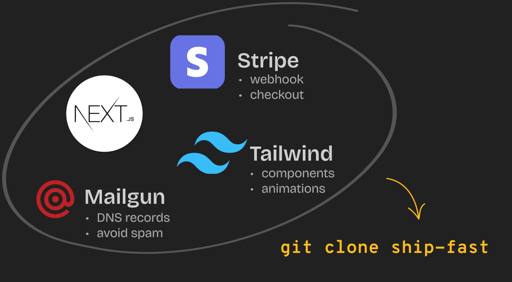'I can't drink the water' - life next to a US data centre
-
This post did not contain any content.
The article isn't clear about the mechanism by which the data center is supposedly affecting the woman's well. Is the data center using well water, depleting the supply of ground water in the area? Or is the claim that the construction disturbed the geology enough to cause problems with flow and sediment in a well 366 meters away? Does anyone know or have theories?
-
The article isn't clear about the mechanism by which the data center is supposedly affecting the woman's well. Is the data center using well water, depleting the supply of ground water in the area? Or is the claim that the construction disturbed the geology enough to cause problems with flow and sediment in a well 366 meters away? Does anyone know or have theories?
It's unclear, because the relevant official bodies insist that things are fine
-
"Our goal is that by 2030, we'll be putting more water back into the watersheds and communities where we're operating data centres, than we're taking out," says Will Hewes, global water stewardship lead at Amazon Web Services (AWS), which runs more data centres than any other company globally.
How can this possibly make sense? Mine owner says, "by 2030 we'll be putting more gold into the ground than we're taking out!" I can only assume this is some carbon credits style of nonsense.
I really hope what they mean is clean water.
It can happen; there’s a paper mill by me that was actually an important part of the river cleanup process when the river was far worse than it is today. It takes water from the river, uses it for their needs, then treats it and returns it to the river far far cleaner than they took it out, which has been a net benefit for the entire downstream river ecosystem. That plan, and their follow-through, is the only reason that mill exists at all.
Thing is, where are they going to find this not-particularly-clean water to treat and return? Are they going to need all new infrastructure built to accommodate this?
And why is that cheaper/easier/whatever than just making a closed loop cooling system, which they could have done from the being..
-
I can’t find evidence that datacenters dump water into the ground.
I thought I found something earlier that alluded to it, but Lemmys on my phone and doing any real research is always annoying on it. I can try to find something. I know they do release very significant amounts of wastewater though. But whether that’s all back on public utilities or how it’s but back in the ground is unclear. I’ll see I can find anything specific.
-
I can’t find evidence that datacenters dump water into the ground.
Does mention it is passed to a treatment facility, some is treated on campus, and other is stored.
So according to epa report it was not expected to affect local groundwater.
-
I really hope what they mean is clean water.
It can happen; there’s a paper mill by me that was actually an important part of the river cleanup process when the river was far worse than it is today. It takes water from the river, uses it for their needs, then treats it and returns it to the river far far cleaner than they took it out, which has been a net benefit for the entire downstream river ecosystem. That plan, and their follow-through, is the only reason that mill exists at all.
Thing is, where are they going to find this not-particularly-clean water to treat and return? Are they going to need all new infrastructure built to accommodate this?
And why is that cheaper/easier/whatever than just making a closed loop cooling system, which they could have done from the being..
Intel was lauded for this same thing in the early 2000s at the fab I worked at, since ultrapure water (literal H2O) was required to rinse the chip wafers the water going out was cleaner than going in.
I’m still not entirely sure why these data centers require such massive amounts of water when we’ve been running heat exchange loops in nuclear plants for decades.
-
"Our goal is that by 2030, we'll be putting more water back into the watersheds and communities where we're operating data centres, than we're taking out," says Will Hewes, global water stewardship lead at Amazon Web Services (AWS), which runs more data centres than any other company globally.
How can this possibly make sense? Mine owner says, "by 2030 we'll be putting more gold into the ground than we're taking out!" I can only assume this is some carbon credits style of nonsense.
global water stewardship lead at Amazon
How can this possibly make sense?
No. Your expectation is wrong. You cannot expect him to make any sense.
Such people do not get paid for making sense, but for creating lies. Dreamy, foggy, false images to distract you, to make you forget about asking for the truth.
-
Intel was lauded for this same thing in the early 2000s at the fab I worked at, since ultrapure water (literal H2O) was required to rinse the chip wafers the water going out was cleaner than going in.
I’m still not entirely sure why these data centers require such massive amounts of water when we’ve been running heat exchange loops in nuclear plants for decades.
I’m still not entirely sure why these data centers require such massive amounts of water when we’ve been running heat exchange loops in nuclear plants for decades.
Because many are running evaporative cooling.
-
This post did not contain any content.
He takes us to a creek downhill from a new construction site for a data centre being built by US firm Quality Technology Services (QTS).
George Dietz, a local volunteer, scoops up a sample of the water into a clear plastic bag. It's cloudy and brown.
Well, maybe they didn't have proper sediment control but a creek is a lot different than well water. Most people don't drink out of creeks, sediment control is done more for the purpose of protecting fish habitat.
Hauls buckets of water to flush her toilet
What? You're concern is sediment in your well water and then go haul dirty brown sediment filled water from the creek to flush your toilet instead?
Buy a sediment filter for your well water. Even people not beside giant data centres should have one just because it keeps the system functional and running better. It is practically a requirement to have one.
-
Intel was lauded for this same thing in the early 2000s at the fab I worked at, since ultrapure water (literal H2O) was required to rinse the chip wafers the water going out was cleaner than going in.
I’m still not entirely sure why these data centers require such massive amounts of water when we’ve been running heat exchange loops in nuclear plants for decades.
They use adiabatic coolers to minimize electrical cost for cooling and maximize cooling capacity. The water isn't directly used as the cooling fluid. It's just used to provide evaporative cooling to boost the efficiency of a conventional refrigeration system. I also suspect that many of them are starting to switch to CO2 based refrigeration systems which heavily benefit from adiabatic gas coolers due to the low critical temp of CO2. Without an adiabatic cooler the efficiency of a CO2 based system starts dropping heavily when the ambient temp gets much above 80F.
They could acheive the same results without using water, however their refrigeration systems would need larger gas coolers which would increase their electricity usage.
-
-
-
-
Never run out of content again. Mojo Video generates unlimited original videos with a single click.
Technology 1
1
-
-
-
The Current System of Online Advertising has Been Ruled Illegal by The Belgian Court of Appeal. Advertising itself is Still Allowed, but not in a Way That Secretly Tracks Everyone’s Behavior.
Technology 1
1
-




